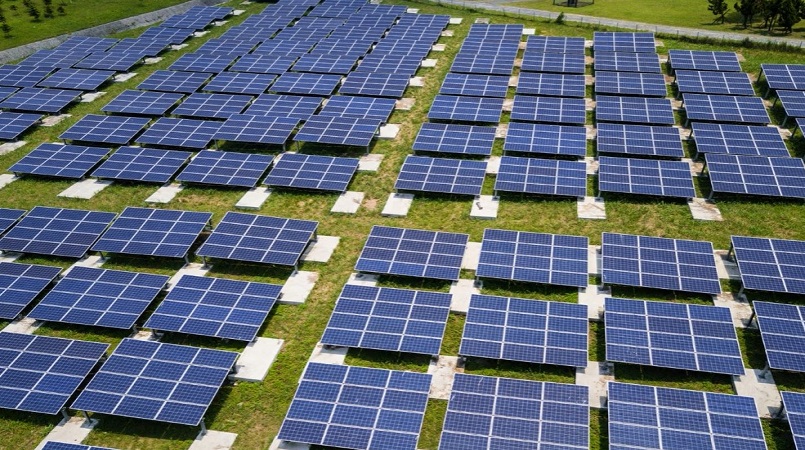
A Tongan engineer is developing a robotic cleaner that could fill the gap in the solar panel maintenance market in the Pacific, as well as creating a historic first for Tonga.
Robotic engineer Arthur Cocker says everyone thinks about setting up a solar farm, but no one thinks about cleaning them reports PMN News.
He says right now the rain is the only cleaner, and if humans were to do it, it would need a water blaster, which could not only damage the panels but also take a lot of time and effort.
“Our solution would actually be a little bit more manageable, as it’s just hard to find staff. This will be automated. We really want our solution to be something that requires little to no effort for them.”
Cocker says the inspiration came about from his mentor Jack Bourke, and even named his first prototype - the Bourke model - after him.
“He suggested I should try my hands at building a robotic cleaning solution and here we are.”
Cocker was a recent grant winner of $5000 USD for his business idea and innovation.
Tonga has the biggest solar power plant in the Pacific region, powering over 10,000 households since August last year. Twenty per cent of Tonga’s energy generation is powered by renewable energy sources, which comes from six solar farms and one wind farms on the main island.
There are three solar farms on the other islands. The Kingdom aims to reach 70 per cent of its energy sources from renewable energy by 2025 as part of its National Energy Roadmap plans.
Before the solar farm, Tonga relied completely on diesel fuel to generate electricity, which is both costly and harmful to the environment.
The 24-year-old says the robot would move in a “rumba-like" fashion to clean the panels, and a second robot might be built so it moves the cleaning robots in between rows - all without physical human involvement.
Most of the energy that is caught by the solar farms is fed into the grid, and that energy is used to power household electricity.
He says there’s no budget allocation or staff for cleaning of the panels.
“All the solar farms here in Tonga are not cleaned at all. They’re quite large, could be eight to ten acres of solar panels.
He says more solar farms are expected in the near future and could be 10 times larger. He wants his project to provide a solution that costs less and doesn’t require people to work harder.
“You won’t even have to use electricity to power them or anything. And we will be able to maintain it from our side. If anything breakdowns we will be able to repair them quite quickly.
“Sometimes there’s a drop in energy output from a solar panel just because it’s not clean. What we’re building helps clean [the solar panels] with little to no supervision”.
Cocker is busy fine-tuning his robot in New Zealand before a showcase next month in Tonga to Tonga Power, a key stakeholder and the only power distributor in Tonga and owner of the three solar farms in Tongatapu. He will need to convince them his solution is the one to go for, and secure contracts for solar farms.
Tonga Power generate, distribute and sell electricity to 25,000 customers in the Kingdom of Tonga, including the outer islands of ‘Eua, Ha’apai & Vava’u.
“I also want to propose a trial cleaning period. They were telling me that it is a very interesting and an innovative project but the demand would be in the dry season, when it’s not raining as much, because that’s their only means of cleaning the solar panels,” says Cocker.
The dry season runs from May till October.
With only four months before the showcase, Cocker had to come up with a concept, design, and actual functional robot prototype, costing him around $8600 to $10,750 NZD.
Cocker hopes to land funding so he could spend the next five months building five further robots as a trial run, and if all goes well, a full scale production will take place to cater for an entire farm.
Photo credit Arthur Cocker Caption: Nearly 20% of Tonga's electricity is generated by solar farms.
